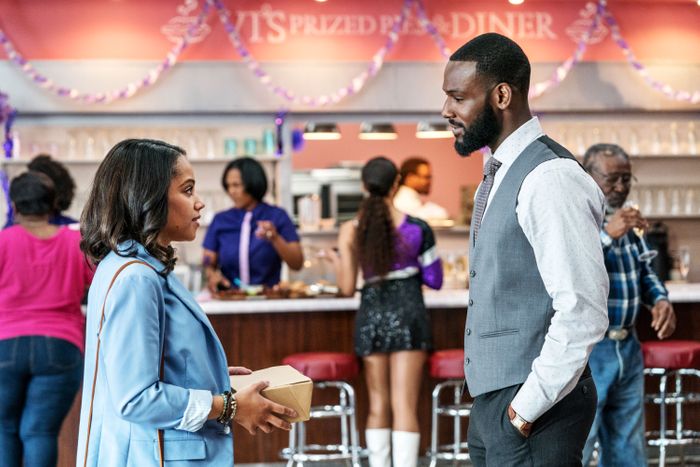
Queen Sugar, which began its fourth season on OWN last night, is a low-key, realistic family drama about a family-run sugar farm that’s as satisfying as one of those decadent, nonsensical nighttime soaps that dominated the broadcast networks in the ’80s — series where oil tycoons got shot and left for dead by members of their own families, entire story lines were wiped clean as being “just a dream,” and season-ending weddings became cliff-hanging massacres because the producers wanted to put the fear of God in actors renegotiating their contracts. Ava DuVernay’s adaptation of Natalie Baszile’s novel executes its plot twists and performances with such easygoing assurance that it satisfies in the manner of a bigger, louder, more brazenly absurd show, even though DuVernay and her collaborators (including an all-woman lineup of episode directors) have restricted themselves to things that could actually happen, infusing indie-film care with Hollywood energy. Accordingly, the season-four premiere “Pleasure Is Black” served up many big moments, the most elating of which saw ex-convict Ralph Angel Bordelon (Kofi Siriboe) learning via letter that his period of parole has finally ended, and bursting into a triumphant run down the main road of the family farm.
The trick, it seems, lies in realizing that events that seem like mere developments in other people’s lives feel pivotal and huge when they happen to us, then figuring out how to invest each subplot with a feeling of singularity and specialness, whether it’s Violet (Tina Lifford) opening her own restaurant or Charley (Dawn-Lyen Gardner) settling into a new romance while dealing with the sugar farm’s financial details. The anxious backbone of this episode — and, according to this panel discussion, the whole season — is a soon-to-be-published book by Rutina Wesley’s Nova, which dredges up the family’s history in the name of art and self-expression. I’m telling on myself here, and most other writers as well, when I say that I find this plotline as nerve-racking as anything in a heist thriller or action-adventure because it shows how hard it is to balance two equal but competing obligations, to be faithful to one’s muse but also compassionate toward the people whose lives are being transformed into art.
Committed to casting filmmakers as well as actors against type, season four of Queen Sugar is overseen by Cheryl Dunye (The Watermelon Woman, Stranger Inside, Greetings From Africa), a versatile filmmaker who has nevertheless been mainly defined by her experimental and low-budget, often self-starring, works on LGBTQ themes. The premiere offers yet another example that skills are skills and can be applied anywhere: A dream sequence midway through the hour contains what might be the show’s most expressionistic filmmaking to date, with Terrence Malick–like shots of shaking tree boughs tinted a feverish hue. DuVernay has said that the show has a clearly defined visual vocabulary — all shows do — but that filmmakers get to color outside of the lines if the result would add something unique, and this was obviously one such case. Finding the epic in the everyday is a gift. Queen Sugar has it, and puts the spotlight where it needs to go.


